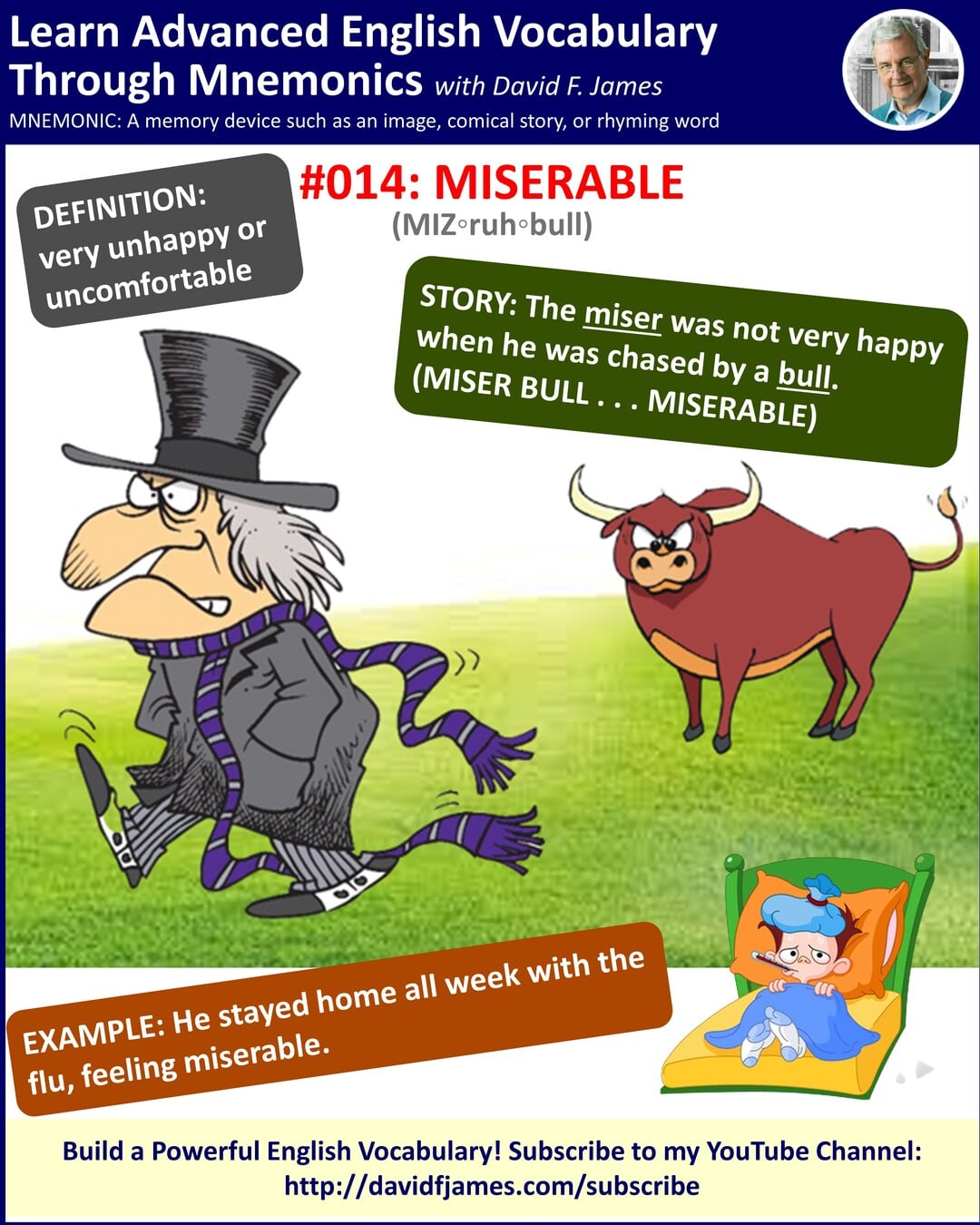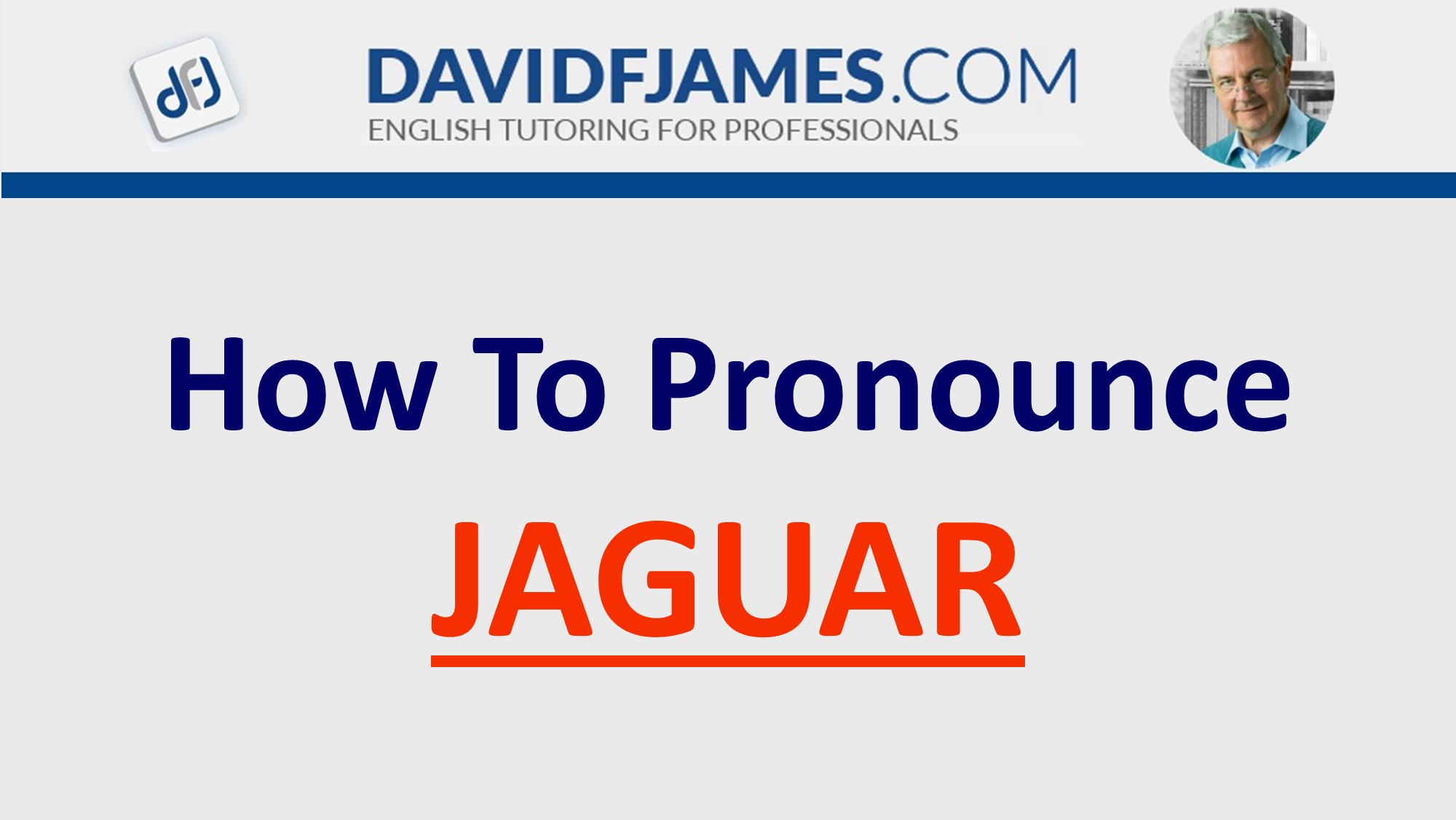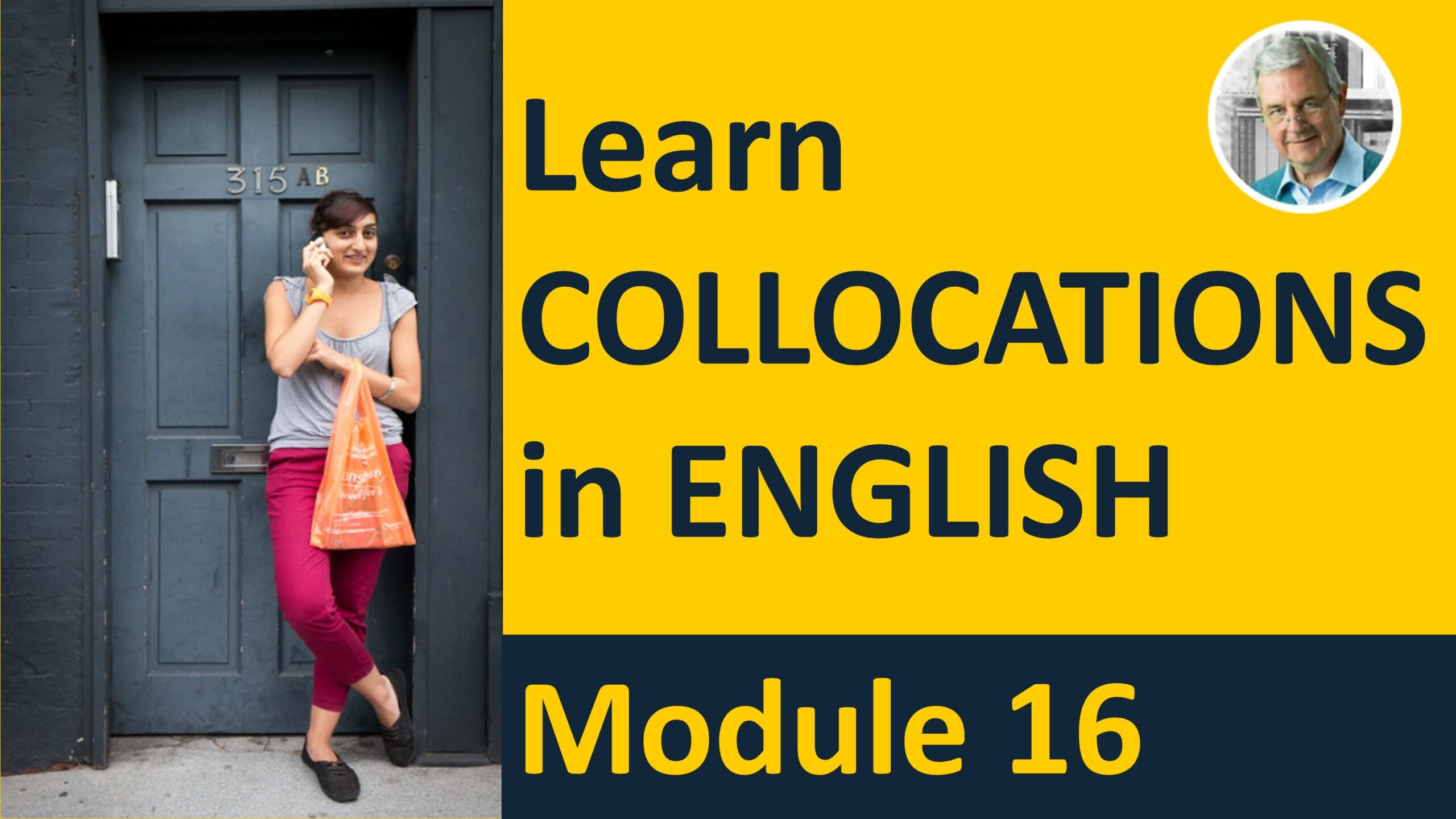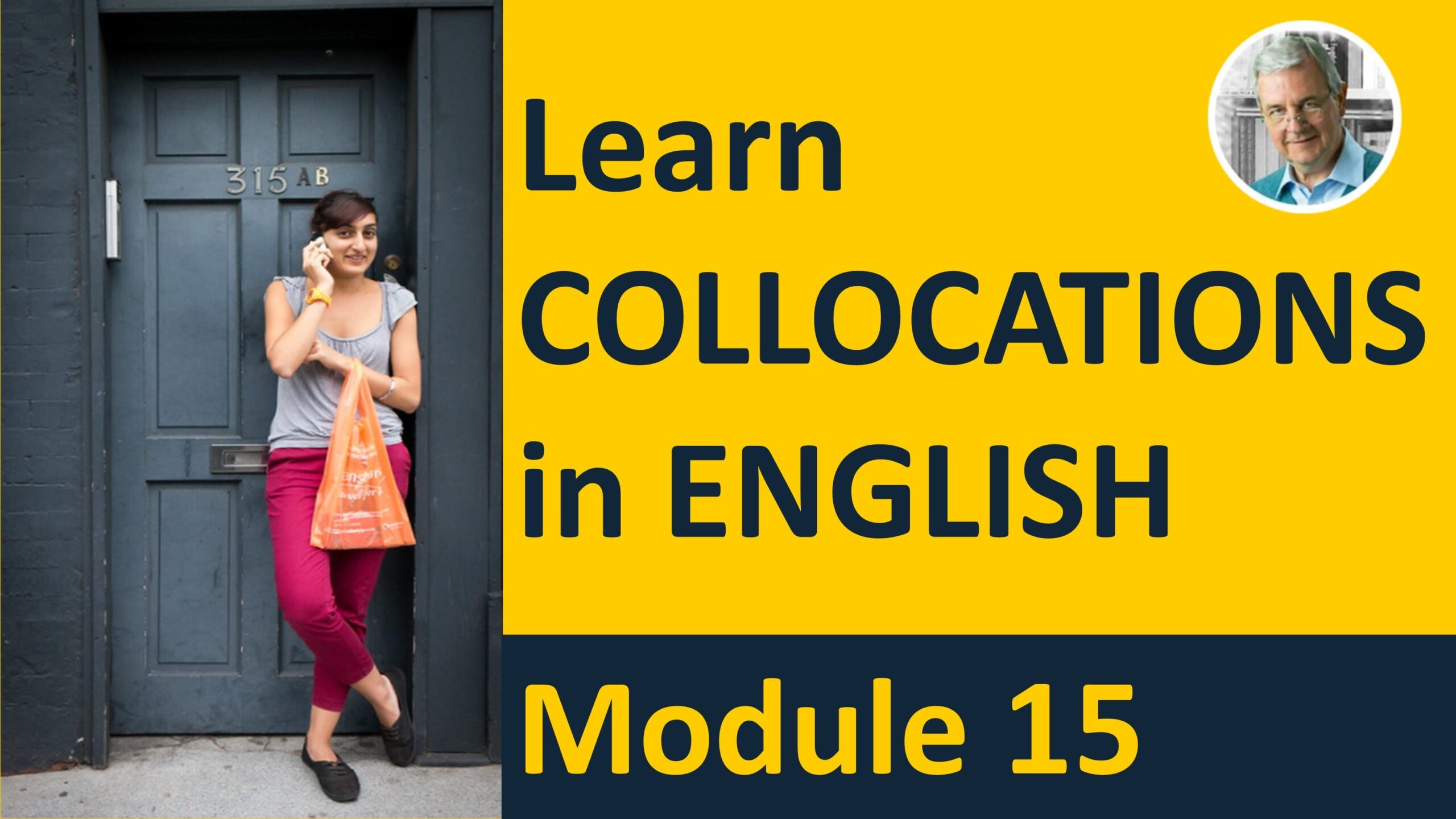ENGLISH COLLOCATIONS in Use – Module 5
ENGLISH COLLOCATIONS in Use – Module 5
Learning groups of words and phrases can have a major impact on your fluency when speaking English. If you say “my car tyre is dead” you will be understood, but when you say “my car tyre is flat” you will sound like a native English speaker.
This video presents 5 more collocations which are regularly used by native speakers. Each collocation is explained through two illustrated sentence examples.
A review and repeat section at the end will help you to commit these 5 collocations to memory. Even if you feel confident with these collocations, do the Repeat 2 exercise. It is done at a fast rate, and this will test whether you have instant recognition.
Here is the transcript of the video – Speak English Fluently – Collocations 5
Slide 2:
Be sure to watch the introductory video to this playlist before doing these exercises.
Click on the link below in the Description . . .
(https://www.youtube.com/watch?v=AINOUe8C0UI)
Slide 3:
We will consider 5 common collocations:
respect for
nervous about
good at
shocked by
have a chat
Slide 4:
respect for
(viewing someone or something with honor and admiration)
Slide 5:
In the UK, people generally have the greatest respect for NHS workers (National Health Service).
Slide 6:
To his colleague he said: “Although we haven’t always agreed on policy, I want you to know I have nothing but respect for the work you have done in this company.”
Slide 7:
nervous about
(feeling uneasy, timid, or a little afraid about something)
Slide 8:
After the accident, she felt a little nervous about driving again.
Slide 9:
Waiting outside the hospital, he felt very nervous about getting his test results.
Slide 10:
good at
(skilful, clever and competent in a certain action or activity)
Slide 11:
He has always been good at maths.
Slide 12:
Although he tried hard, he was not very good at crossword puzzles.
Slide 13:
shocked at
(stunned, amazed, astonished about something)
Note: “shocked by” is also used but to a much lesser extent
Slide 14:
When the Sex Pistols first appeared in the mid-1970s, many people were shocked at their behaviour.
Slide 15:
Although she saw a pair of shoes she liked, she was shocked at the price!
Slide 16:
have a chat
(to have a light, informal conversation with someone)
Slide 17:
While waiting for her flight, she had a chat with the passenger sitting next to her.
Slide 18:
She said: “It’s so nice to see you. We haven’t had a chat for ages!”
Slide 19:
Again, the 5 collocations are:
respect for
(viewing someone or something with honor and admiration)
nervous about
(feeling uneasy, timid, or a little afraid about something)
good at
(skilful, clever and competent in a certain action or activity)
shocked by
(stunned, amazed, astonished about something)
have a chat
(to have a light, informal conversation with someone)
Slide 63:
3 Action Steps . . .
- Did this video help you? Hit LIKE now and/or leave a comment . . .
Do you want to CONTINUALLY improve your English?
- Hit the SUBSCRIBE button now, click the Bell icon then click ALL so you don’t miss a single video!
- Enrol in my FREE English Vocabulary Builder course at
Go to: http://goodenglish.online
Image Credits
Slide 5 – NHS
Creative Commons
https://flic.kr/p/2kq4XYd
Slide 6 – colleagues
Creative Commons
https://flic.kr/p/fXUnJG
Slide 8 – driving
Creative Commons
https://flic.kr/p/2jS6tWf
Slide 9- hospital
Creative Commons
https://flic.kr/p/4Bse8q
Slide 11 – homework
Creative Commons
https://flic.kr/p/7vFzqf
Slide 12 – crossword
Creative Commons
https://flic.kr/p/Akf8jR
Slide 14 – Sex Pistols
Creative Commons
https://flic.kr/p/axtjGL
Slide 15 – shoes
Creative Commons
https://flic.kr/p/4kxj5b
Slide 17 – airport
Creative Commons
https://flic.kr/p/8sbWUM
Slide 18 – friends
Creative Commons
https://flic.kr/p/jQE8mZ
——————————————————
Regarding the use of illustrations and photographs used in this video:
Creative Commons Attribution Licence
Others are allowed to copy, distribute, display, and perform copyrighted work – and derivative works based upon it if they give credit to the creator or source.
https://creativecommons.org/licenses/by/4.0/legalcode
If you are interested in English Collocations in Use, be sure to check this video:
English Collocations in Use – Module 4





